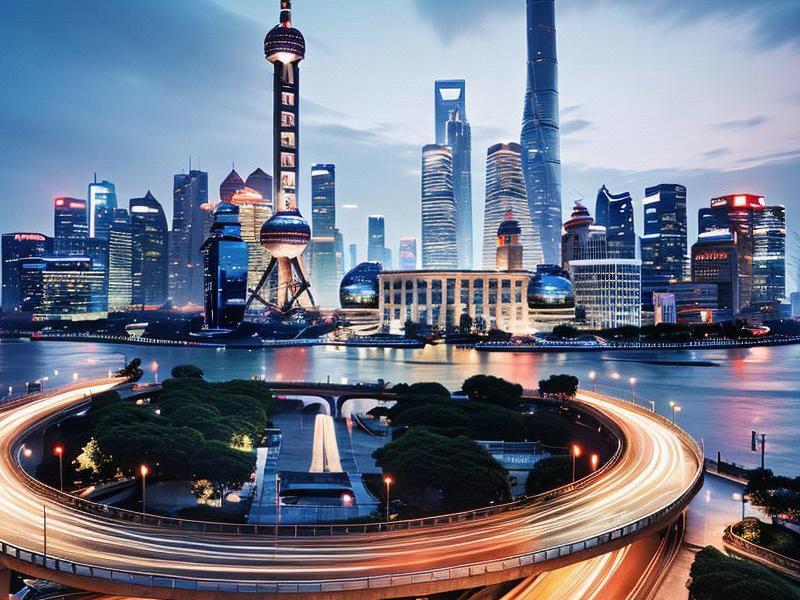This article delves into the multifaceted aspects of Shanghai, exploring its role as a global financial hub, a cultural melting pot, and a city that is at the forefront of technological innovation. It examines the city's rapid urban development, its rich cultural heritage, and its increasing global influence.

Shanghai, often referred to as the 'Pearl of the Orient,' stands as a beacon of China's economic and cultural resurgence. Over the past few decades, this vibrant metropolis has transformed from a modest port city into one of the world's most dynamic urban centers. Its skyline, a blend of historic architecture and cutting-edge skyscrapers, is a testament to its remarkable evolution.
The city's strategic location at the mouth of the Yangtze River has historically made it a crucial hub for trade and commerce. Today, Shanghai continues to play a pivotal role in global economic affairs, housing the world's busiest container port and being home to the prestigious Shanghai Stock Exchange. The city's financial district, known as Lujiazui, is a hive of activity, with multinational corporations and financial institutions setting up their regional headquarters here.
Shanghai's rapid urban development is nothing short of astonishing. The city has masterfully balanced modernization with the preservation of its rich cultural heritage. Iconic landmarks such as the Bund, a waterfront promenade showcasing colonial-era architecture, stand in stark contrast to the futuristic skyline of Pudong, home to the iconic Oriental Pearl Tower and the Jin Mao Tower. This harmonious blend of old and new is what makes Shanghai so unique.
Culturally, Shanghai is a melting pot of influences. It has been a crossroads of Chinese and Western cultures for over a century, resulting in a distinct Shanghainese identity that is reflected in its cuisine, fashion, and arts scene. The city is renowned for its exquisite cuisine, which combines traditional Chinese flavors with European culinary techniques. From the famous Xiaolongbao (soup dumplings) to the decadent Shanghainese-style steak, the city's culinary offerings are a delight for food enthusiasts.
上海龙凤419贵族
Shanghai's art scene is equally vibrant, with numerous galleries, theaters, and cultural institutions showcasing a wide range of artistic expressions. The city hosts several prestigious cultural festivals throughout the year, including the Shanghai International Film Festival and the Shanghai Fashion Week, which attract artists, designers, and audiences from around the globe.
Technology and innovation are at the heart of Shanghai's development. The city has been investing heavily in research and development, making it a leader in fields such as artificial intelligence, biotechnology, and green energy. The Zhangjiang Hi-Tech Park, often referred to as 'China's Silicon Valley,' is home to numerous high-tech companies and research institutions, fostering a thriving innovation ecosystem.
Shanghai's commitment to sustainability is evident in its urban planning and infrastructure projects. The city has been at the forefront of green building initiatives, with many new developments incorporating energy-efficient designs and renewable energy sources. The Maglev train, which connects Shanghai Pudong International Airport to the city center, is a prime example of the city's focus on sustainable transportation.
上海龙凤419自荐
The city's global influence extends beyond the economic and cultural realms. Shanghai has been actively involved in international diplomacy and cooperation, serving as a host city for numerous global summits and forums. The G20 Summit, held in Shanghai in 2001, was a significant milestone in the city's rise as a global player. More recently, Shanghai has been a key partner in China's Belt and Road Initiative, contributing to the development of infrastructure and trade networks across Asia, Europe, and Africa.
Education is another area where Shanghai excels. The city is home to some of the best universities in China, attracting students from around the world. Fudan University and Tongji University are renowned for their academic excellence and research contributions, making Shanghai a hub for higher education and intellectual exchange.
Shanghai's residents enjoy a high quality of life, with access to world-class healthcare, education, and cultural amenities. The city's public transportation system is efficient and extensive, making it easy for residents to navigate the bustling metropolis. The city's parks and green spaces provide a welcome respite from the urban hustle and bustle, offering residents and visitors a chance to connect with nature.
上海品茶论坛
Despite its rapid development, Shanghai remains committed to preserving its historical and cultural heritage. The city has taken significant steps to protect its historic districts, ensuring that future generations can appreciate the rich history and traditions of this unique city. The Shanghai Museum, housed in the former site of the French Concession, is a treasure trove of Chinese art and artifacts, attracting millions of visitors each year.
Shanghai's future looks bright, with continued investment in innovation, sustainability, and cultural development. The city is poised to play an even more significant role on the global stage, contributing to the advancement of technology, the preservation of cultural heritage, and the pursuit of sustainable development.
In conclusion, Shanghai is a city that embodies the spirit of China's transformation and its aspirations for the future. Its dynamic blend of tradition and modernity, its commitment to innovation and sustainability, and its increasing global influence make it a truly remarkable city. As Shanghai continues to evolve, it will undoubtedly remain a source of inspiration and fascination for people around the world.